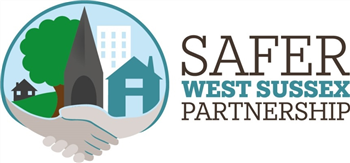Sextortion

The term sextortion was created to combine the words ‘sexual’ and ‘extortion’ and can also be referred to as sexual extortion or sexually coerced extortion.
Criminals may use a fake identity to befriend a child or young person online and encourage them to send nude or partially nude photos or videos. They may then use these images to blackmail the child. Individuals might commit sextortion, but organised crime gangs are usually behind it. Find out more about what it is and how criminals operate on the National Crime Agency website. You can also view Thorn's stop sextortion campaign video.
There are increasing reports of the sextortion of boys and young men. They are often targeted through dating apps, social media, gaming or pornography sites.
You can find resources to help if you are worried about sextortion or online blackmail on the Internet Watch Foundation (IWF) website.
More information
-
The video below, courtesy of the Police Service of Northern Ireland, shows a short example of what a sextortion conversation could look like.
If you are a young person who has been a victim, or is currently experiencing sextortion, you can find help, information and advice:
- on the Internet Watch Foundation's Sexually Coerced Extortion or 'Sextortion' help and support page
- about sexting and sending nudes on the Childline website
If you don’t have a trusted adult you can talk to, and you’re under 18, you can speak to Childline for free by email, phone or in a 1-2-1 chat with a counsellor.
You can report sexual images and videos of yourself that have been posted online using Childline and the Internet Watch Foundation's 'Report Remove' tool. Using the tool, you will get help to have images or videos removed from the internet.
-
If you are a parent or carer and you want to find out more about sextortion, the Digital Safety Team at West Sussex County Council has created a short parent guide that explains what sextortion is, what to do if your child is a victim, how and where to report to and where to find support.
There is also a short video designed by the Digital Safety Team, which goes into more detail about sextortion and how it affects children and young people within West Sussex.
If a child or young person you know is experiencing sextortion, you can report it to Sussex Police by:
- phoning 101 (use the textphone service on 18001 101 if you have a hearing or speech impairment)
- reporting it online through the Sussex Police report a crime form.
Victims under the age of 18 who have experienced any online sexual abuse or are worried about the way someone has been communicating with them online, should also report to the Child Exploitation and Online Protection website’s Safety Centre.
-
In West Sussex the number of children and young people reporting that they have been a victim of sextortion has increased and the age of victims is getting younger.
Children are being contacted via social media and gaming platforms and the financial loss for an individual can vary, but is commonly between £100 to £500. Payment to the perpetrator is most likely made via PayPal or bank transfer.
Sextortion offences disproportionately impact on male victims in both children and adults.
If you are in an education setting, you can find information to help you in on the CEOP National Crime Agency education website.
Working with someone who has been sextorted
If you are working with a child or young person who has been sextorted, or someone comes to you disclosing that they are a victim, don’t panic, there is plenty of help and support available. Follow these steps:
- Check whether the victim has made any payment yet. If they haven’t, tell them not to pay.
- Make sure you save any evidence. You can do this by taking screenshots of messages and collecting links to any images or video the criminal may have shared.
- Report it through the social media channel it happened on, for example, Facebook or Instagram. Most social media sites have rules against sharing intimate content without consent. You should be able to get the material removed.
Make sure the victim blocks all communication with the person targeting them.
-
In Autumn 2024, Year 10 students from secondary schools in Crawley came together to form the Sextortion Project Awareness Group (SPAG). Local schools nominated students based on data showing that most sextortion victims were boys aged 14 to 17.
The group was shaped by early research and a school-wide survey carried out as part of the West Sussex County Council (WSCC) Sextortion Project.
Over six weeks, students met weekly at Crawley Town Council and Crawley Town Football Stadium. During these sessions, they created the name SPAG and discussed how to raise awareness of sextortion among their peers.
Experts from WSCC’s Digital Safety and Fraud Prevention team and Crawley Borough Council’s Community Safety Team shared key findings from the project. The students then split into two smaller groups to design awareness materials made by and for young people. These included a series of posters, one designed for display on buses, and an animation.
We’re incredibly grateful to the students who gave their time and creativity to produce these valuable resources.
The final posters and animation will be shared across West Sussex in both digital and printed formats.
If you’d like to receive copies of the SPAG posters or animation to use in your school, organisation, or community, email: communitysafety.wellbeing@westsussex.gov.uk.
 Students at Crawley Town Football Stadium
Students at Crawley Town Football Stadium
